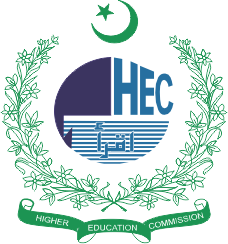Relationship Between Psychological Skills and Performance Among Cricketers in Pakistan: Mediating Role of Emotional Intelligence
DOI:
https://doi.org/10.63062/trt/WR25.067Keywords:
Psychological Skills, Emotional Intelligence, Cricket Performance, Sports Psychology, Mental ResilienceAbstract
This study explores the relationship between psychological skills and performance among domestic/international cricketers in Pakistan, highlighting the mediating role of emotional intelligence (EI). Purposive sampling technique was used in the study, permission to collect data was taken from the Pakistan Cricket Board, and data from 100 elite cricketers i.e. 50 males and 50 females who represented Pakistan's national side and domestic regions through Pakistan Cricket Board were analyzed through standardized tools i.e. Test of Performance Strategies (TOPS), Psychological Skills Inventory for Sports (PSIS) and Schutte Emotional Intelligence Scale (SEIS). Results indicate significant positive relationship between psychological skills and performance, with Emotional Intelligence enhancing the application of mental strategies under pressure. Males and elite-level cricketers exhibited higher psychological skills and emotional intelligence than their female counterparts having only regional experience. Limitations include self-reported data and a small sample size. The findings suggest integrating psychological skills training and emotional intelligence development into coaching programs to improve cricketers’ performances and decision-making.
References
Ahmad, S., & Safdar, F. (2020). Goal orientation, motivation, and competitive anxiety in players of domestic cricket in Pakistan. Pakistan Journal of Psychological Research, 35(1), 87-105. https://doi.org/10.33824/PJPR.2020.35.1.6
Bandura, A. (1997). Self-efficacy: The exercise of control. W. H. Freeman.
Clough, P., Earle, K., & Sewell, D. (2002). Mental toughness: The concept and its measurement. Solutions in sport psychology, 1(1), 32-46. https://www.scirp.org/reference/ReferenceID=1902775
Cowden, R. G. (2017). Mental toughness and success in sport: A review and prospect. The Open Sports Sciences Journal, 10(1). http://dx.doi.org/10.2174/1875399X01710010001
Fletcher, D., & Sarkar, M. (2012). A grounded theory of psychological resilience in Olympic champions. Psychology of Sport and Exercise, 13(5), 669-678. https://doi.org/10.1016/j.psychsport.2012.04.007
Gould, D., Guinan, D., Greenleaf, C., Medbery, R., & Peterson, K. (1999). Factors affecting Olympic performance: Perceptions of athletes and coaches from more and less successful teams. The sport psychologist, 13(4), 371-394. https://doi.org/10.1123/tsp.13.4.371
Gucciardi, D. F., Hanton, S., Gordon, S., Mallett, C. J., & Temby, P. (2016). The concept of mental toughness: Tests of dimensionality, nomological network, and traitness. Journal of Personality, 84(1), 18-30. https://doi.org/10.1111/jopy.12079
Hanin, Y., Khanin, I., & Chanin, J. (2000). Emotions in sport human kinetics. Go to original source.
Hanton, S., Jones, G., & Mullen, R. (2000). Intensity and direction of competitive state anxiety as interpreted by rugby players and rifle shooters. Perceptual and motor skills, 90(2), 513-521. https://doi.org/10.2466/pms.2000.90.2.513
Hardy, L., Roberts, R., Thomas, P. R., & Murphy, S. M. (2010). Test of Performance Strategies (TOPS): Instrument refinement using confirmatory factor analysis. Psychology of Sport and Exercise, 11(1), 27-35. https://doi.org/10.1016/j.psychsport.2009.04.007
Hatzigeorgiadis, A., Zourbanos, N., Mpoumpaki, S., & Theodorakis, Y. (2009). Mechanisms underlying the self-talk–performance relationship: The effects of motivational self-talk on self-confidence and anxiety. Psychology of Sport and Exercise, 10(1), 186-192. https://doi.org/10.1016/j.psychsport.2008.07.009
Hill, D. M., Hanton, S., Matthews, N., & Fleming, S. (2010). Choking in sport: A review. International Review of Sport and Exercise Psychology, 3(1), 24-39. https://doi.org/10.1080/17509840903301199
Humphrey, N., Lewis, S., & Squires, G. (2008). Emotional intelligence and education: A critical review. Educational Psychology, 28(3), 349-370. https://doi.org/10.1080/01443410701738637
Laborde, S., Dosseville, F., & Allen, M. S. (2016). Emotional intelligence in sport and exercise: A systematic review. Scandinavian Journal of Medicine & Science in Sports, 26(8), 862-874. https://doi.org/10.1111/sms.12510
Lane, A. M., Thelwell, R. C., Lowther, J., & Devonport, T. J. (2009). Emotional intelligence and psychological skills use among athletes. Social Behavior and Personality: An International Journal, 37(2), 195-202. https://doi.org/10.2224/sbp.2009.37.2.195
Mahoney, M. J. (1989). Sport psychology. American Psychological Association.
Mahoney, M. J., Gabriel, T. J., & Perkins, T. S. (1987). Psychological skills and exceptional athletic performance. The sport psychologist, 1(3), 181-199. https://doi.org/10.1123/tsp.1.3.181
Mayer, J. D., & Salovey, P. (1997). What is emotional intelligence? In P. Salovey & D. J. Sluyter (Eds.), Emotional development and emotional intelligence: Educational implications (pp. 3-31). Basic Books.
Meyer, B. B., & Fletcher, T. B. (2007). Emotional intelligence: A theoretical framework for the study of emotions in sport. International Journal of Sport Psychology, 38(2), 91-99.
Narimani, M., & Basharpoor, S. (2009). Comparison of attachment styles and emotional intelligence between athlete women (collective and individual sports) and non‒athlete women. Research Journal of Biological Sciences, 4(2), 216-221. https://makhillpublications.co/published-files/mak-rjbs/2009/2-216-221.pdf
Perlini, A. H., & Halverson, T. R. (2006). Emotional intelligence in the national hockey league. Canadian Journal of Behavioural Science/Revue canadienne des sciences du comportement, 38(2), 109-119. https://psycnet.apa.org/doi/10.1037/cjbs2006001
Schutte, N. S., Malouff, J. M., Hall, L. E., Haggerty, D. J., Cooper, J. T., Golden, C. J., & Dornheim, L. (1998). Development and validation of a measure of emotional intelligence. Personality and Individual Differences, 25(2), 167-177. https://doi.org/10.1016/S0191-8869(98)00001-4
Tenenbaum, G., & Eklund, R. C. (2020). Handbook of Sport Psychology. John Wiley & Sons. https://doi.org/10.1002/9781119568124
Thomas, P. R., Murphy, S. M., & Hardy, L. (1999). Test of Performance Strategies: Development and preliminary validation of a comprehensive measure of athletes’ psychological skills. Journal of Sports Sciences, 17(9), 697-711. https://doi.org/10.1080/026404199365560
Vealey, R. S. (1986). Conceptualization of sport-confidence and competitive orientation: Preliminary investigation and instrument development. Journal of Sport & Exercise Psychology, 8(3), 221-246. https://doi.org/10.1123/jsep.8.3.221 s
Weinberg, R. S., & Gould, D. (2015). Foundations of sport and exercise psychology (6th ed.). Human Kinetics.
Zizzi, S. J., Deaner, H. R., & Hirschhorn, D. K. (2003). The relationship between emotional intelligence and performance among college baseball players. Journal of Applied Sport Psychology, 15(3), 262-269. https://doi.org/10.1080/10413200305390
Downloads
Published
Issue
Section
License
Copyright (c) 2025 Muhammad Umar Fayyaz, Dr. Amna Hanif Tarar

This work is licensed under a Creative Commons Attribution-NonCommercial 4.0 International License.





